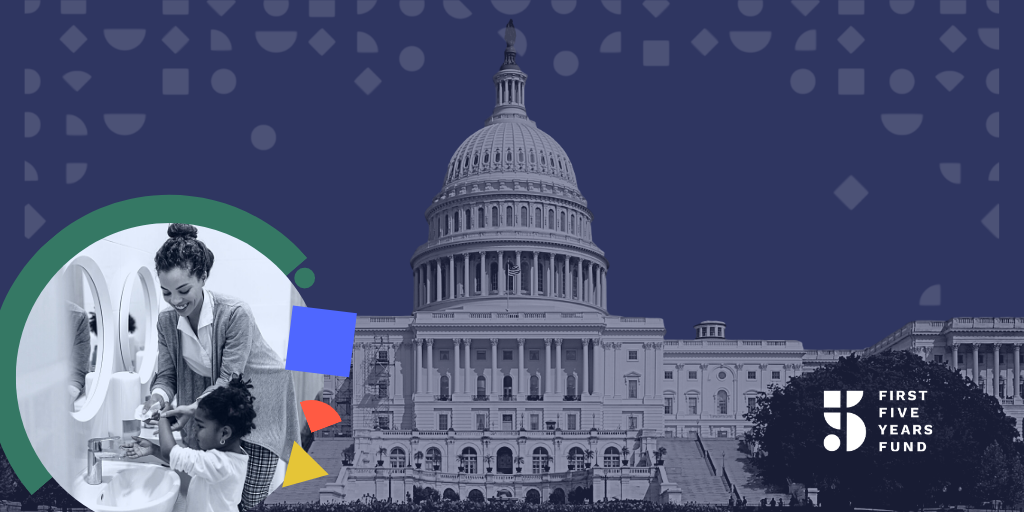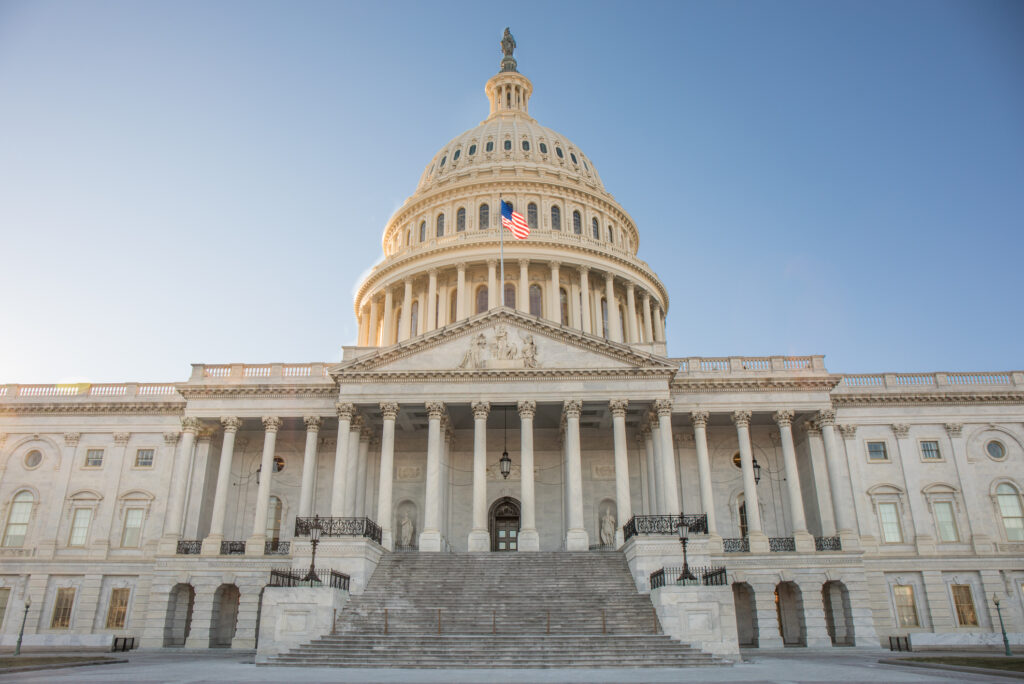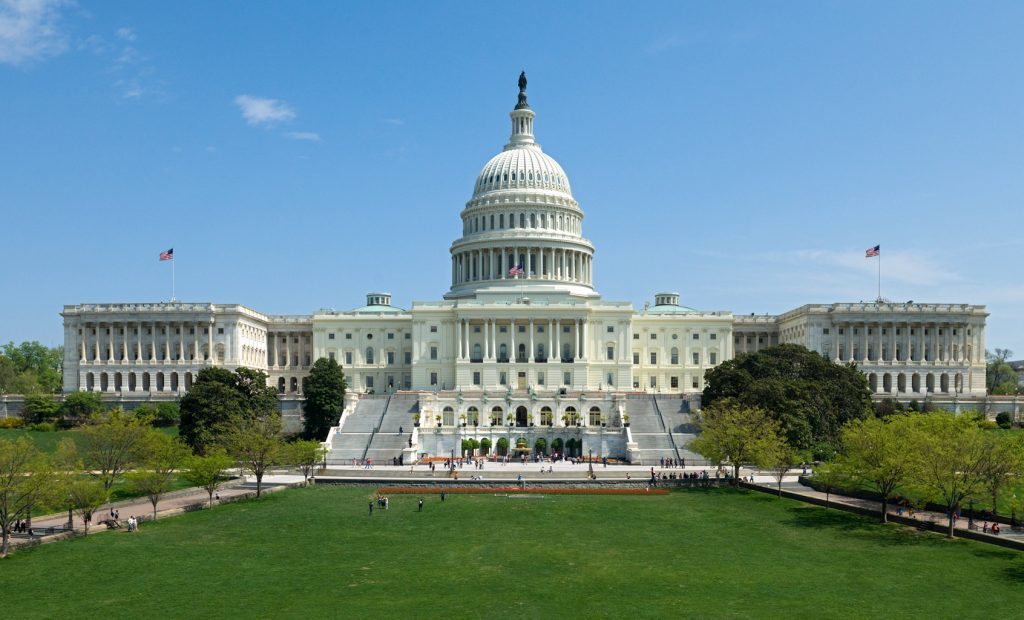Child Care for Working Families Act Re-Introduced in Congress

WASHINGTON – Today, Senator Patty Murray (D-WA) and Congressman Bobby Scott (D-VA) re-introduced the Child Care for Working Families Act (CCWFA), comprehensive legislation that would address access, affordability, and quality in early learning and care. The bill would ensure that no low- or middle-income family spends more than 7% of their income on child care, address longstanding challenges for early childhood educators, including low wages, and would invest in increasing the supply of quality child care in communities, while making other important quality improvements to existing programs. It is estimated that the bill would create at least 2.3 million jobs: 700,000 in the early education profession and 1.6 million parents returning to the labor force as a direct result of greater access to child care, according to U.S. Bureau of Labor Statistics data. First Five Years Fund (FFYF) endorses this legislation.
“For too many families, high-quality child care was out of reach even before the pandemic because it simply became too expensive. Without support, working families have been forced to find alternatives, sacrificing quality or leaving work entirely,” said First Five Years Fund Executive Director Sarah Rittling. “Now more than ever, lawmakers must support child care providers, working families, and young children by ensuring high-quality child care is affordable and early educators and care providers are respected for their important work. To resolve a crisis like this, we need bold, innovative solutions like the Child Care for Working Families Act. We are grateful to Senator Murray and Congressman Scott for their steadfast support for working families and children, and we look forward to working with bipartisan child care champions on Capitol Hill to ensure early learning and care opportunities are available to families with young children who need it.”
Underscoring the need to address rising child care costs, which have increased by 25% in the last decade, recent analysis shows that families on average are spending more on child care than housing in many states, and the cost of care in 33 states and the District of Columbia exceeds the average cost of in-state tuition at a public 4-year institution. In fact, in 2019, families paid an average of roughly $22,000 per year for full-time child care in a center for two children (an infant and a four-year-old). Meanwhile, a majority of Americans live in a child care desert, defined as an area with more than 3 young children for every 1 licensed child care slot. At the same time, nearly 37% of the child care workforce lives below 200% of the federal poverty line, with the average wage in 2018 for those employed in child care centers at just $11.17 per hour. The child care workforce is 94% women, 40% people of color, 52% mothers, 22% foreign born. Only 15% of early educators receive health insurance coverage.
The Child Care for Working Families Act would address these issues in a number of ways, including:
- Ensuring low-income and middle-class families who earn up to 150% of the state median income have access to child care assistance. 3 in 4 children ages 12 and under would be income-eligible for child care assistance;
- Limiting child care payments to 7% of a family’s income. The median family’s child care payment would not exceed $45 per week;
- Ensuring that people who work in child care earn a living wage and are compensated at the same level as elementary school teachers with the same credentials and experience;
- Making investments to improve quality in child care programs by providing states with resources to increase quality and ensure there is a transparent system to measure quality;
- Building the supply of child care to address the shortage, particularly in underserved areas and for toddlers, infants, and children with disabilities;
- Providing necessary funding for full-day, full-year Head Start programming.
The Biden Administration is expected to unveil the American Families Plan with important child care and early learning provisions, including many elements included in the Child Care for Working Families Act. In addition, the proposal is reported to include an extension of the Child and Dependent Care Tax Credit (CDCTC) and the Child Tax Credit (CTC), which were temporarily expanded as part of the American Rescue Plan Act earlier this year. Forthcoming legislation from House Ways and Means Committee Chairman Richard Neal (D-MA) is expected to propose making the CDCTC and CTC expansions permanent, in addition to significant increases to mandatory funding for child care through the Child Care and Development Fund (CCDF).
Underscoring the bipartisan nature of addressing the nation’s long standing child care challenges, FFYF’s national polling shows overwhelming support among Republican and Democratic voters nationally and in key electoral swing states for a wide range of federal early learning and care policy proposals, including increased federal funding for child care, expanded access to preschool, and child care tax credits for working parents. This indicates huge electoral advantages and virtually no political downside for lawmakers to support many of the policies included in this legislation.
Earlier this year, FFYF released its Blueprint for Progress, offering Congress and the Biden administration insight into opportunities, big and small, to support early learning and care programs for children from birth through age five. The sweeping resource provides a true blueprint for lawmakers with policy proposals to address access, affordability, and quality in child care and early learning, outlining wide-ranging solutions that fit squarely into the various legislative vehicles Congress might pursue, from infrastructure, to tax reform, to annual funding bills, to budget reconciliation, and more. The Blueprint is online at FFYF.org/Blueprint.
The First Five Years Fund is the leading bipartisan federal advocacy organization working to ensure all children from birth through age five have equal access to affordable, comprehensive, high-quality care and education to support their healthy development and help them achieve their full potential in school and life. FFYF seeks to expand federal support for all early learning and care opportunities that are high-quality and focused first on serving those children most-at-risk. http://www.ffyf.org
Subscribe to FFYF First Look
Every morning, FFYF reports on the latest child care & early learning news from across the country. Subscribe and take 5 minutes to know what's happening in early childhood education.



